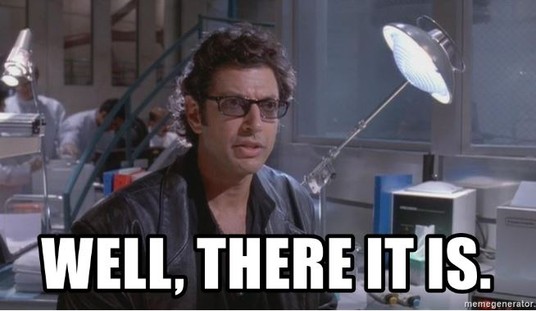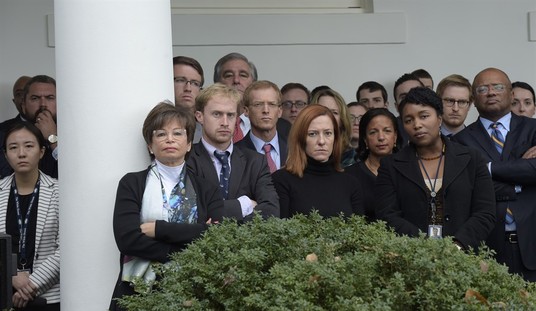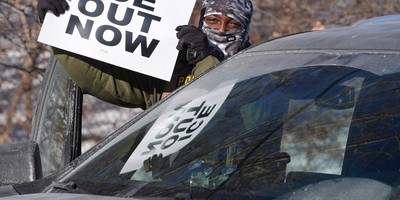http://twitter.com/#!/TheMatthewKeys/status/325141103210807296
Under fire for those two now-deleted tweets, Reuters Deputy Social Media Editor Matthew Keys is defending himself.
You'll see my name in a few critical articles about Boston emergency scanner traffic. Here's my side… – http://t.co/J9Cy31xmVi
— Matthew Keys (@MatthewKeysLive) April 22, 2013
His Facebook post reads in part:
A) Late Thursday night / early Friday morning, there were a lot of social journalists on Twitter who were publishing what they heard on the scanner. I’m not going to name any names, but if you do your homework, you’ll easily see there were several prominent social journalists and breaking news accounts tweeting details from the scanner.
B) The Boston Police Department never put out a press release, nor did they publish a tweet, asking people not to publish information heard over emergency scanner traffic. The Boston Police Department Twitter published a tweet that said: “#MediaAlert: WARNING – Do Not Compromise Officer Safety/Tactics by Broadcasting Live Video of Officers While Approaching Search Locations.” They published this twice. Nowhere does it mention scanner traffic.
C) When people became upset, I said on Twitter I hadn’t seen the CBS News report that everyone was sourcing in which the Boston Police supposedly asked people not to publish scanner traffic. With a focus on four different video streams, several Twitter lists and, yes, dispatch audio, it slipped by me. But once I became aware of it, I stopped. In fact — having been awake well over 24 hours, with 10 of them covering the overnight event — I closed the computer and went to bed.
Recommended
Click here for the whole thing.
We don’t always see eye to eye with Keys, and if he committed criminal acts we think he should be prosecuted. But with regard to citing scanner traffic, he is right. On Thursday night/Friday morning, many of us on all sides of the political aisle wrote about what we heard on the Boston P.D. scanner. (See, e.g., this.)
Keys was hardly unique, and neither he nor others in old media or new media did anything wrong.
Both mainstream journos and new media journos were doing exactly the same thing on Friday night as law enforcement closed in on fugitive bombing suspect Dzhokhar Tsarnaev.
Chicago Sun Times:
https://twitter.com/marcusgilmer/status/325118004817981440
Sports Illustrated:
They got him! "Suspect in custody." Per scanner.
— Stewart Mandel (@slmandel) April 20, 2013
Bleacher Report:
3 injured officers at command post, per scanner. No word on how they were injured or what types of injuries.
— Matt Miller (@nfldraftscout) April 19, 2013
BuzzFeed:
Police are headed to a house on Dexter, per scanner. "Do not use your radios."
— Chris Geidner (@chrisgeidner) April 19, 2013
It wasn’t just journalists. On Friday night, more than a quarter million people were tuned into public police scanner traffic at one point. Over the course of the entire evening, a total of 2.5 million listeners listened in:
RT @ckanal: More than a quarter of a million listeners now for #Boston police scanner http://t.co/0qiPNXlhfU
— Joey Maestas (@SportsJoey) April 20, 2013
Police scanners are public as a matter of accountability and practical logistics. Encryption would greatly limit interoperability in times of crisis when several different levels of law enforcement and government need to communicate with each other.
Oh, and for all the criticism new media journalists are getting for sharing the information with their audiences, old media has relied on scanners for years.
https://twitter.com/cschweitz/status/326034743487520770
“In the end, our position is that [eliminating access to police scanner frequencies] harms public access,” [Gregg Leslie, legal defense director at Reporters Committee for Freedom of the Press] says. “There’s a lot of public good done by letting the media and the public know what first responders are up to and it’s a shame that that could all go away.”
Related:
Left, Right, journos all passed along incorrect Boston Police Dept. scanner information
* * *
Update:
Reuters fired Keys today. According to Keys, his police scanner tweets were one of the reasons given for his termination.
If tweeting police scanner information is now a firing offense, why was Keys singled out?
@moorehn I tweeted names, sourced to dispatch audio, that later turned out to be incorrect. As did others who work for Thomson Reuters.
— Matthew Keys (@MatthewKeysLive) April 22, 2013
























Join the conversation as a VIP Member